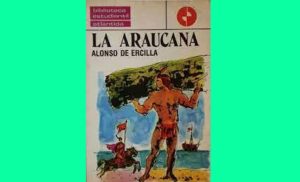La Araucana-by Alonso de Ercilla | Zuniga-A Review
La Araucana-by Alonso de Ercilla by Zuniga-A Review
Introduction:
“La Araucana” is a renowned epic poem authored by Alonso de Ercilla y Zuniga, a Spanish nobleman and soldier who participated in the Arauco War between the Spanish conquistadors and the Mapuche people in the 16th century. This epic poem stands as a significant work in Spanish literature, as it narrates the events and battles of the Spanish conquest of Chile, while also offering insight into the complexities of colonization and the cultural clash between the Spanish and indigenous populations.
Structure:
The poem is divided into three parts, with a total of 37 cantos. Ercilla chose a rhymed octosyllabic verse, which is common for epic poems of the Renaissance period. Each canto presents a self-contained episode, often centered around a particular battle, encounter, or important event. This structure allows readers to engage with the poem’s narrative in manageable sections.
Themes and Content:
Heroism and Honor: The central theme of “La Araucana” revolves around the valor, bravery, and honor displayed by both the Spanish conquistadors and the Mapuche warriors. Ercilla portrays the deeds of individuals on both sides as heroic, regardless of their allegiances, emphasizing the human qualities that transcend cultural differences.
Cultural Clash: The poem explores the profound cultural clash between the Spanish colonizers and the indigenous Mapuche people. Ercilla vividly illustrates the differing belief systems, lifestyles, and values of these two groups. The clashes extend beyond the battlefield and into moments of dialogue and interaction, providing readers with a nuanced understanding of the conflict.
National Identity: “La Araucana” played a role in shaping Spanish national identity by glorifying the conquest of foreign lands and portraying the Spanish as a powerful and conquering force. It also touched on themes of patriotism and the defense of one’s homeland.
Nature and Landscape: Ercilla’s vivid descriptions of the Chilean landscape and the natural environment provide a backdrop that enhances the poem’s atmosphere. The portrayal of landscapes, flora, and fauna not only adds aesthetic value but also reflects the harsh conditions and challenges faced by both sides during the war.
Humanization of the Enemy: An interesting aspect of the poem is Ercilla’s attempt to humanize the Mapuche warriors. While the Spanish conquistadors are often depicted in a positive light, Ercilla also reveals the humanity of the indigenous people, portraying their emotions, desires, and struggles. This approach adds depth to the narrative and challenges simplistic perspectives.
Narrative Style:
Ercilla’s narrative style is marked by its descriptive richness, showcasing his skill in painting detailed and imaginative scenes. His language is often ornate and displays his extensive knowledge of classical literature. He employs various rhetorical devices, such as similes, metaphors, and allegories, to embellish the text and enhance its emotional impact.
Significance:
“La Araucana” holds immense historical and literary significance. It provides valuable insights into the conquest of Chile and the complexities of colonization. The poem’s portrayal of the Mapuche people challenges prevailing colonial attitudes and invites readers to consider different perspectives on the conflict.
Conclusion:
Alonso de Ercilla by Zúñiga’s “La Araucana” is a masterful epic poem that not only narrates the events of the Arauco War but also delves into the human experience of conquest, valor, and cultural conflict. Through its thematic depth, descriptive beauty, and historical context, “La Araucana” continues to be a revered work of literature that sheds light on a critical period in the history of Spain and the Americas. 0 0 0.
N.B. The article originally belongs to the book entitled ‘The Reviews of Epic Literature Around the World‘ by Menonim Menonimus.
You May Like:











